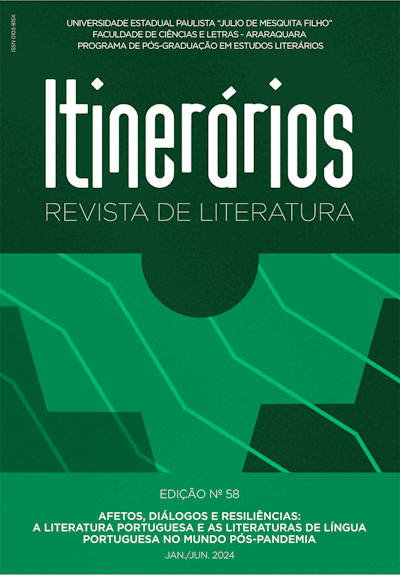The sacred and the desire in the drama A pécora, by Natália Correia
DOI:
https://doi.org/10.58943/irl.v1i57.18641Keywords:
Theater, Dramaturgy, Women, Social critiqueAbstract
The work analyzes the presence of women in the play “A Pécora,” by Natália Correia, written and censored in 1967, only published in 1983. By contrasting two versions of the main female character, opposite in terms of moral concepts, the author brings into focus the discussion of women violated in their social roles and their limitations in the face of social and religious hypocrisy. In the context of commercial exploitation through faith, the use of the image of the sanctified woman emerges in contrast to the suppressed female desire and the figure of the prostitute. In a succession of events that point to the oppositions of femininity between the public and the private sphere, the social discourse shapes the character’s identity construction. The analysis is based on the studies of Elaine Showalter on social taboos and women’s repression and Chimamanda Ngozi Adichie’s work to consider the role of women in contemporary society in relation to the transgressive critique proposed by the playwright in the 20th century.
Downloads
Published
Issue
Section
License
Os manuscritos aceitos e publicados são de propriedade da revista Itinerários. É vedada a submissão integral ou parcial do manuscrito a qualquer outro periódico. A responsabilidade do conteúdo dos artigos é exclusiva dos autores. É vedada a tradução para outro idioma sem a autorização escrita do Editor ouvida a Comissão Editorial.

